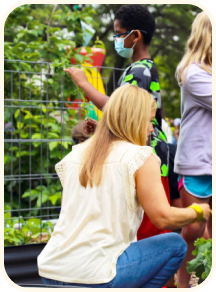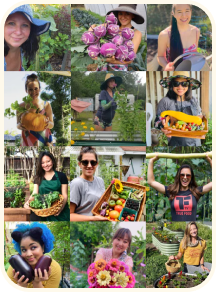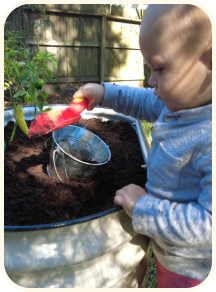Seeds of Success: Discover the Best Seeds and Supplies for Your Garden
Shopping for garden supplies, from seeds to soil mixes, can be fun. But it also can be a little daunting. Especially when the vast number of choices start to register, from seed types to plant varieties.
While your final selections will be up to you, we’ve put together a few tips to help guide you through your decision-making process.
Get into your zone
Nearly every seed and supply choice you make should take your location, and its typical weather conditions, into account. Plants and trees that can withstand the bone-chilling cold of Montana, for example, may struggle in the intense heat in Texas.
With that in mind, the United States Department of Agriculture (USDA) developed a map that divides North America into 13 “hardiness zones” based on average annual minimum winter temperatures. To find your zone, you can visit the USDA Hardiness Zone Map and enter your ZIP code or location. Armed with that information, you can look for seeds labeled for your zone as you browse seed catalogs or shop at your local nursery.
You also can turn to local gardening centers, agricultural extension offices, or botanical gardens for insights on regional planting conditions and recommended plant varieties.
Knowing your zone can help you with more than your seed choices. It also can guide you as you select supplies. If you live in a hot and arid climate (like Zone 10), for example, you might prioritize organic mulches suitable for drought-resistant gardens and highly efficient watering systems.
Know the lingo

One potential challenge for new gardeners is making sense of seed descriptions in catalogs and on packets. Here are some of the terms you’re most likely to encounter:
Open-pollinated: These seeds are produced through natural pollination methods like insects, animals, or wind. They’re usually more affordable than hybrid or genetically modified options. They also have the potential to adapt to local environmental conditions over time, making them well-suited for diverse growing regions and climates.
One potential downside is that plants grown from open-pollinated seeds tend to vary when it comes to traits like flavor, color, size, and disease resistance.
Heirloom: These seeds have been passed down from generation to generation, often within a family or community, for their unique characteristics, historical significance, or cultural heritage. They’re usually open-pollinated varieties that have been carefully cultivated and preserved over time.
Many gardeners appreciate the unique flavors and characteristics of heirloom fruits and vegetables. On the other hand, as open-pollinated seeds, they can vary in their growth habits, disease resistance, pest tolerance, and yield compared to modern hybrid seeds.
Hybrid seeds: These seeds are the result of cross-pollination between two different parent plants with desirable traits. Hybrid seeds produce plants that are more uniform in terms of size, shape, and growth habits than open-pollinated varieties. They’re usually bred to be resistant to common diseases and pests, and some varieties are bred to thrive in specific growing conditions like arid or hot environments.
Keep in mind, though, that hybrid seeds don’t reliably produce offspring with the same traits as their parent plants, so you wouldn’t be able to save seeds from hybrid crops for future planting. Also, the cost of hybrid seeds tends to be higher than open-pollinated varieties.
Organic: Organic seeds are produced from plants grown using organic farming practices. And because they’re produced without the use of synthetic pesticides, herbicides, or fertilizer, using these seeds reduces exposure to potentially harmful chemicals for both you and the environment. Also, organic seeds are often open-pollinated varieties, so they can be saved and replanted.
Potential downsides, though, are that organic seeds can be more expensive than other options, and you may find they’re not available for some types of plants. Plus, organic crops can be more susceptible to pests and diseases.
Keep your gardening experience in mind

We also would like to gently encourage you to factor in your gardening experience as you consider your seeds and supplies. Some plants and products are easier to work with than others.
If you’re a beginner, consider starting with the seeds of plants that are resilient, adaptable, and forgiving of minor mistakes. Some examples of easy-to-grow seeds for beginners include:

- Lettuce
- Radishes
- Zucchini
- Green beans
- Cucumbers
- Marigolds
- Portulaca (also known as Moss Rose or Sun Rose)
- Catmint
- Sunflowers
With veggies, pick things you would actually enjoy eating. And, as always, choose varieties that are well-suited to your climate, along with your soil type and sunlight exposure. Seed catalogs and packets include this information, and so will local extension agents and nurseries.
You can also find supplies that will make your initial gardening experiences easier. By investing in high-quality potting mix (and adding compost to your soil), you’ll be giving your plants the nutrients and soil conditions they need to thrive.
Along the same lines, a good organic mulch will help you conserve moisture, suppress weeds, and regulate soil temperature in your garden.
You also can benefit from equipping yourself with a few essential gardening tools to make your gardening tasks easier and more efficient. Some basic tools for beginner gardeners include a trowel, hand pruners, and gloves. Take time to research customer reviews to help you find tools that are comfortable and a good fit for your needs.
We also recommend investing in a watering can, hose, or drip irrigation system to ensure your plants get enough moisture.
Seek advice

As you mull over your seed and supply choices, consider tapping into the wealth of information and resources available to you.
Joining an online gardening forum is a good way to connect with experienced gardeners who are willing to share advice. Another helpful option is to join a local gardening club, or simply talk with a neighbor who gardens. That way, you can learn what seeds and supplies do best in your area.





















